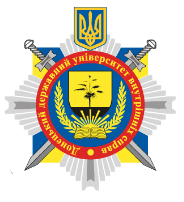СУТНІСТЬ ПРАВА ТА ЗАКОНУ В ПРАВОВИХ ВІЗІЯХ ХОСЕ ОРТЕҐИ-І-ҐАСЕТА
DOI:
https://doi.org/10.32782/2523-4269-2024-88-3-8Ключові слова:
Х. Ортеґа-і-Ґасет, право, закон, використання, римське право, корпоративна угода, антилюдскість, антиавторитарністьАнотація
На прикладі римського права розглянуто сутність права і закону в правових візіях Х. Ортеґи-і-Гасета. Виявлено, що в інтерпретації мадридця право здобуло відокремленість від звичаю завдяки громадській думці і є життєвою можливістю членів суспільства. В його сутність закладається двосторонній принцип використання, можливість покращити життя індивіда, а також ірраціональність й загальна корисність. Закон є плодом суспільного компромісу між правовими можливостями і небезпечною ситуації, і є певною корпоративною угодою, яка стає імперативною нормою спільноти у чітко визначеній дії. В процесі свого формування закон виходить з можливостей права і одночасно своєї ситуаційною сутністю заперечує право. Римське право мало не статутну форму і не санкціювалося державою. Закон створює нову велику, імперативну реальністю і набуває антилюдську, неособисту, і одночасно антиавторитарну сутність.
Посилання
Rivaya Benjamín. La filosofía del derecho en España. Desde el fin del franquismo a nuestros días. Ratio Juris UNAULA. 2008. 3(6), рр. 53–67. https://doi.org/10.24142/raju.v3n6a4.
Ortega у Gasset J. ¿Que es filosofia? Obras completas. T. VII (1948–1958). Septima edicion. Revista de Occidente Madrid. 1964. P. 275–438.
Bacigalupo Zapater Enrique, Ortega y Gasset sobre Kelsen y el derecho. Revista de estudios orteguianos. 2016. 33, рр. 115–131.
Ортега-і-Гасет Х. Спортивне походження держави. Філософська і соціологічна думка. 1990, № 6. С. 36–48.
Ortega у Gasset J. Meditacion de Europa. Obras Completas. Tomo. IX (1960–1962). Septima edicion. Revista de Occidente Madrid. 1965. Р. 245–315.
Ortega у Gasset J. Origen y epilogo de la filosofia. Obras completas. T. IX (1960-1962). Septima edicion. Revista de Occidente Madrid. 1965. P. 347–434.
Ортега-і-Гасет Х. Кант. Вибрані твори. К. : Основи, 1994. С. 205–226.
Ортега-і-Гасет Х. Тема нашої доби. Вибрані твори. К. : Основи, 1994. С. 315–369.
Ортега-і-Гасет Х. Занепад революцій. Вибрані твори. К. : Основи, 1994. С. 370–390.
Ortega у Gasset J. Una іnterpretaciоn de la historia universal. En torno A. Toynbee. Obras Completas. Tomo. IX (1960–1962). Septima edicion. Revista de Occidente Madrid. 1965. P. 9–242.
Ортега-і-Гасет Х. Безхребетна Іспанія. Вибрані твори. К. : Основи, 1994. С. 140–195.
Alonso Fernando H. Llano. El Derecho y la idea de Estado en José Ortega y Gasset: su proyeccion en la doctrina iusfisofica contemporanea. Derechos y libertades. Número 22, Época II, enero. 2010. Р. 85–117. URL: https://e-archivo.uc3m.es/handle/10016/14566 (aсcessed 18.07.2024).
Gil Cremades, Juan José. Jhering en Ortega y Gasset. Doxa. Cuadernos de Filosofía del Derecho, 2020. 43, pp. 31–58. https://doi.org/10.14198/.
Elías de Tejada F. Derecho y ley en José Ortega y Gasset. Anales De La Cátedra Francisco Suárez, 2022. 5, 109–127. https://doi.org/10.30827/acfs.v5i.26497.
Ortega у Gasset J. El genia de la guerra la guerra alemana. Obras Completas. Tomo. II (1916–1934). Septima edicion. Revista de Occidente Madrid. 1963. P. 192–223.
Ortega у Gasset J. Por que he escrito «El hombre a la defensiva». Obras completas. T. IV (1929–1933). Septima edicion. Revista de Occidente Madrid. 1966. P. 69–74.
Ortega y Gasset J. En torno a Galileo. Obras Сompletas. Vol. V (1933–1942). Septima edicion. Revista de Occidente Madrid. 1961. Р. 9–164.





